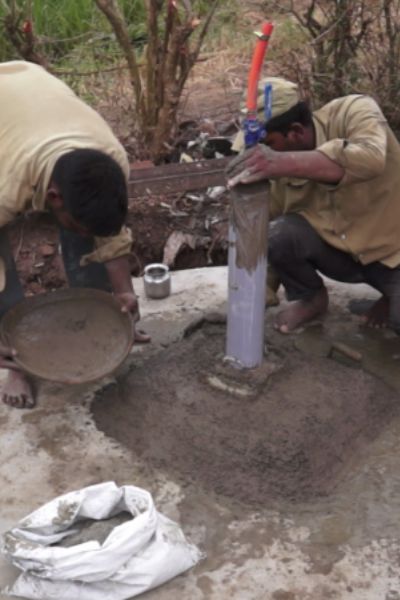Shivsadan Easy Apply Biogas
Shivsadan provides a two-year guarantee on all biogas projects. When animal and human waste, poultry waste, or compost decompose in the absence of air, biogas is produced, which is a mixture of methane and carbon dioxide. It is transported through pipes and can be used for cooking.
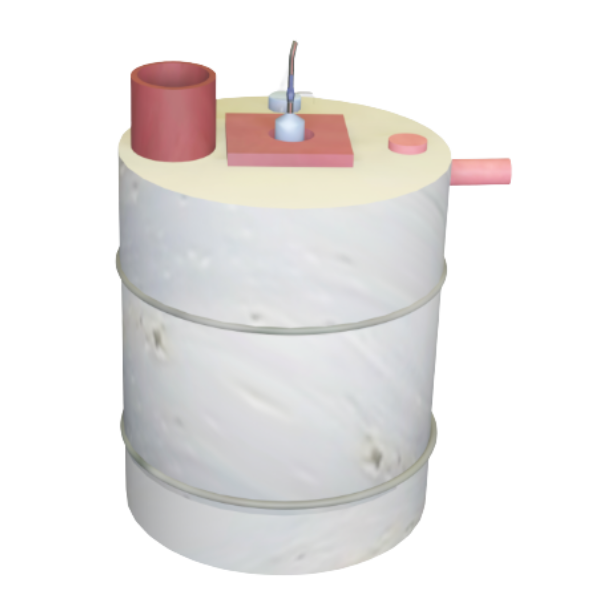
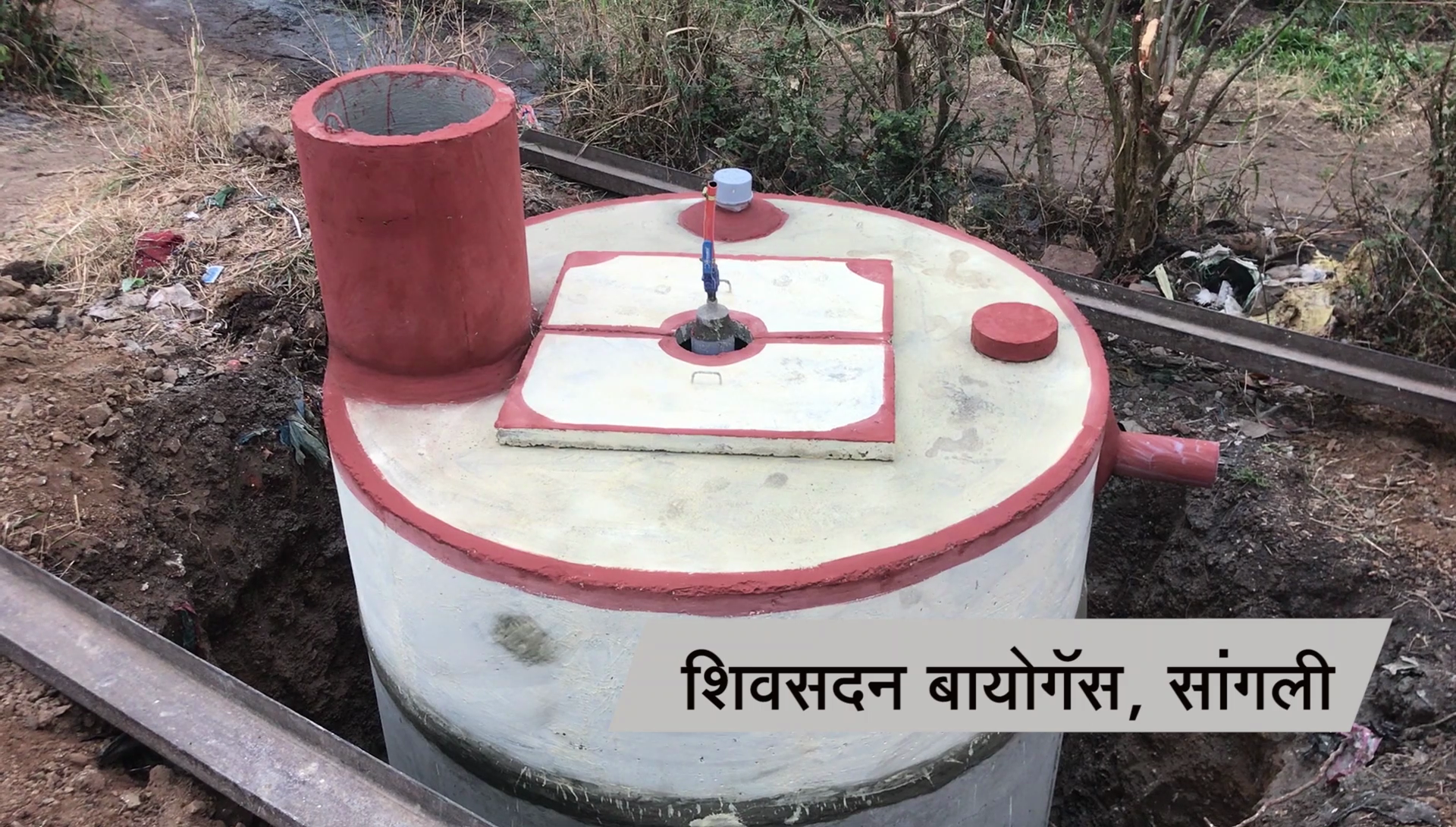
About Shivsadan
Shivsadan Co-operative Society Ltd., Sangli was founded in 1969 for the overall development of farmers.
This society was founded under the competent leadership of late Mr. Raghunathrao Mamasaheb Bhide, a social worker, and industrialist. This society has now been in existence for 54 years.
Committed to rural development and healthy urban living, the society has established several projects in both rural and urban areas. The society manufactures R.C.C. water supply pipes, R.C.C.vasant housing, Cattleshades for animals, Biogas plants, toilets, baths, water tanks, and several other products.
All of these items were manufactured in its factory in Sangli and delivered to the customer’s location. ShivSadan’s R.C.C.biogas plant is the backbone of farmers’ overall development.
Progress of Shivsadan
During the past 55 years, the organisation has contributed to rural and urban communities by closely applying cooperative ideals. Numerous people helped with this project. Founding Member (Late) Datta Apte, And Laxmanrao Retherekar, former Chief Minister Vasantdada Patil, Rajarambapu Patil, former MP Prakashbapu Patil, Vishnuanna Patil, and Madanbhau Patil deserve special attention. These great souls oriented Shivsadan to the service of the people via cooperative movement. To date, the organization’s Board of Management has executed it effectively. That is why Shivsadan became ingrained in the public as a people’s organisation. Late Mamasaheb Bhide was the father and guardian of the institution. Thousands of customers and well-wishers from all across the world Sangli, Satara, Kolhapur, Ratnagiri, Sindhudurg, Pune, Solapur, Nashik Zilla Parishad officers, functionaries, and banks, as well as other government, semi-government, charitable organisations, Rural Co-operative Societies, and so on, have shown faith in Shivsadan, and this trust is regarded as recognition of Shivsadan’s work. Presently, the management board of the organisation consists of S.S. Pol as the President, B.T. Valvekar as the Vice-President while Chandrashekhar Bhide, Shri Prasad Retherekar, Vikram Awti, Subhash Rao Arve, Shivajirao Unune, Prof. Srirang Chavan, Mrs. Nanda Sawant, Mrs. Smita Kelkar, famous industrialist Rajabhau Shirgaonkar are directors and R. P. Nilakant is the Executive Director.

Progress of Shivsadan
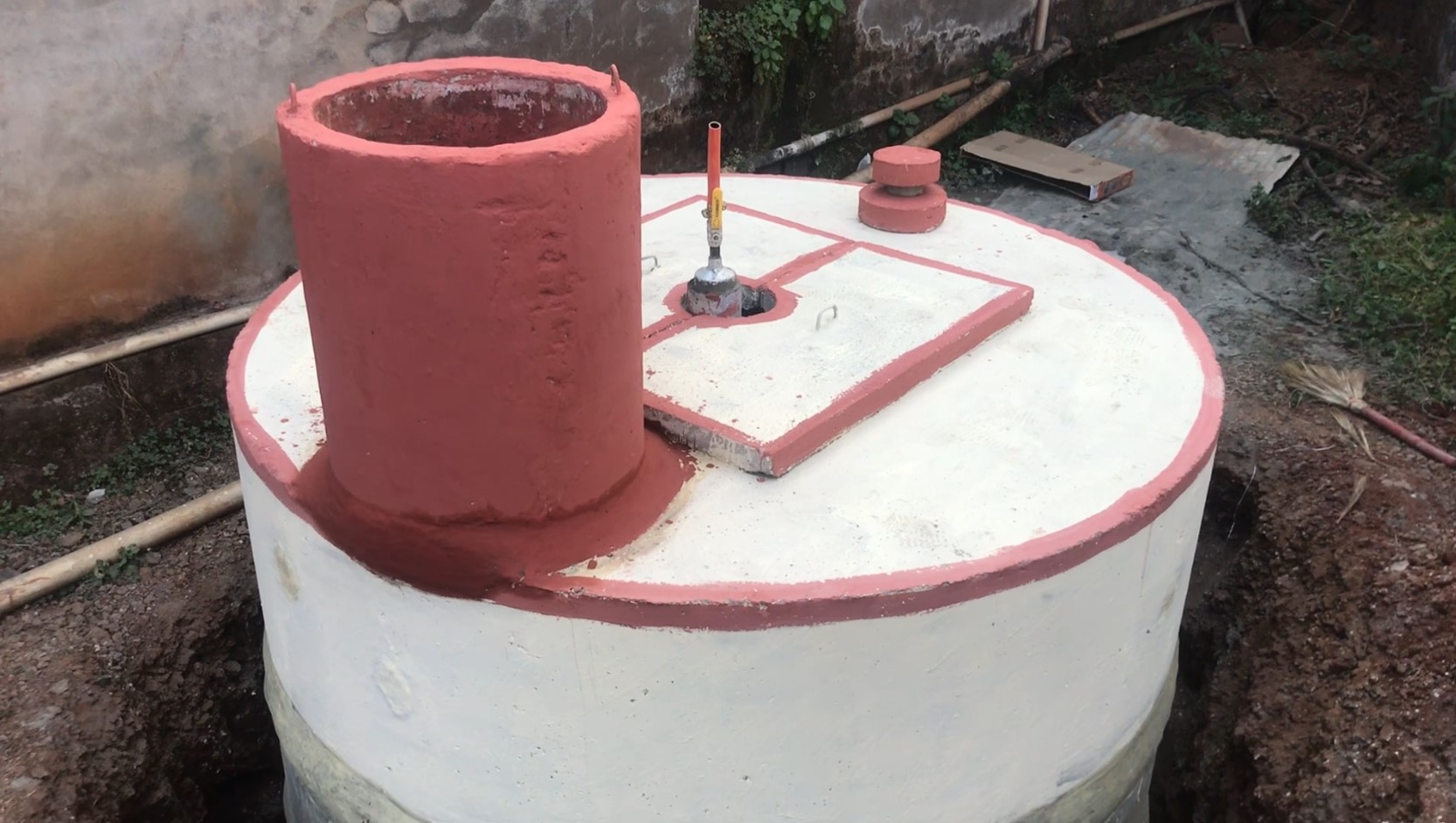
By strictly implementing the principles of cooperation, the organization has contributed to rural and urban areas for 55 years today. Many people contributed to this work. Founder Member (Late) Dutta Apte, And Laxmanrao Retherekar, former Chief Minister Vasantdada Patil, Rajarambapu Patil, former MP Prakashbapu Patil, Vishnuanna Patil, and Madanbhau Patil deserve special mention. During the infancy of Shiv Sadan, this noble person gave him the gift of working for the people through cooperation. It has been efficiently implemented by the Board of Management of the organization to date. That is why Shiv Sadan also became rooted in the masses as an organization of each. (Late) Mamasaheb Bhide was the father and guardian of the institution. Thousands of customers and well-wishers spread far and wide Sangli, Satara, Kolhapur, Ratnagiri, Sindhudurg, Pune, Solapur, Nashik Zilla Parishad officers, functionaries and banks, other government, semi-government, charitable organizations, Rural Co-operative Societies, etc. have shown faith in Shiv Sadan, so this trust is considered as the receipt of Shiv Sadan’s work. Presently, the management board of the organization consists of S.S. Pol as the President, B.T. Valvekar as the Vice-President, Chandrashekhar Bhide, Shri Prasad Retherekar, Vikram Awti, Subhash Rao Arve, Shivajirao Unune, Prof. Srirang Chavan, Mrs. Nanda Sawant, Mrs. Smita Kelkar, famous industrialist Rajabhau Shirgaonkar are watching as the Director. As Executive Director, R. P. Nilakant is working.

About Biogas
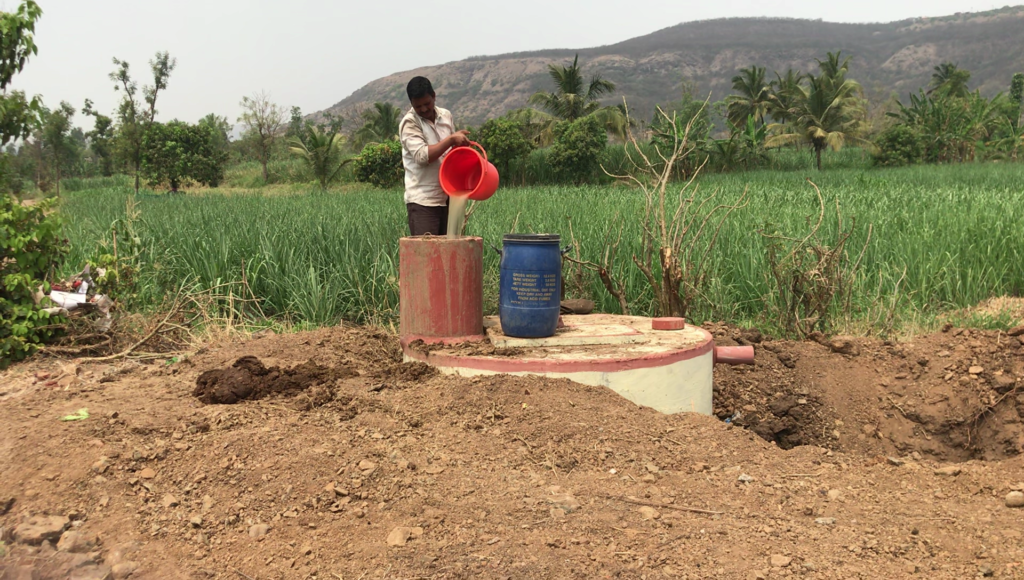
When animal and human waste, poultry waste, or compost decomposes in the absence of air, biogas is produced, which is a mixture of methane and carbon dioxide.
It is transported through pipes and can be used for cooking.
The use of ready biogas Plant biogas is produced by the breakdown of animal and plant wastes in the absence of oxygen. Because it is clean gas, the farmers’ houses, belongings, and kitchen utensils remain clean. It ensures that Women are spared the hassles of collecting firewood. When toilets are connected to biogas, pathogens such as gastro, cholera, jaundice, typhoid, and polio are eradicated. The environment is still clean. The mixture produced by the biogas plant contains nutrients and additives that can be used as good manure.
Biogas is an urgent need: In farmers’ homes, the ‘Chulha’ is constantly burning, and women get exhausted from blowing it. The smoke fills the entire room. The roof and walls turn dark. Even objects in the house turn black. Aside from that, it bothers the woman’s eyes. It causes health issues. The smoke stench pervades the entire house. You would never feel refreshed in such an environment. Women must put in a lot of work to keep their homes clean. As a result, biogas is required. This image of the residence is altered by biogas. No question of smoke at all. Simply place a matchstick near the burner and it will burn with a blue flame.
Because the heavy products and crane required for the plant’s installation must be loaded into the truck and transported to the pit, it is the farmer’s responsibility to create the road to the site where the plant will be installed. When the plant is being built with cranes, if there are any obstacles in the way, such as power, telephone, etc. wires, tree branches, etc., the farmer must remove them at his own expense so that the crane can travel back and forth without difficulty. If the organization’s crane is inoperable, the customer must offer an alternate solution for erection at JCB Hydra’s expense.
Since it is impossible to obtain enough dung at one time to fill the plant, the customer should anticipate when the plant will be built by ShivSadan and store the dung. The available dung should be piled on plastic paper so that small stones, soil, and rubber do not mix with it. In addition, the dung should be covered with a kiltan and lightly sprinkled with water to prevent rot and drying owing to the chill. The institute also provides a 15-meter-long gas pipeline and a double burner grate in addition to the biogas plant. If more pipe is needed, the customer must bring it at his own expense.
The customer is required to clear the side portion of the biogas plant immediately following its erection. If this is not done, there is a risk of the biogas plant collapsing if water from the ground or above collects in the pit. If a biogas plant fails, the customer must pay a high price to restart it. Furthermore, there is no guarantee that such a straightening plant will work properly. As a result, rather than incurring a financial loss, the buyer should promptly fill the side with fine dirt. It is crucial for the consumer to take care that huge stones do not go while filling the side. If such large stones are placed in the fill, they may hit the plant and crack the plant pipes. If JCB is used for filling, care should be taken to ensure that it does not damage the plant. Otherwise, the plant’s RCC pipes piled one on top of the other would slip and cause gas leakage, which the customer cannot afford to fix, thus the customer must exercise caution.
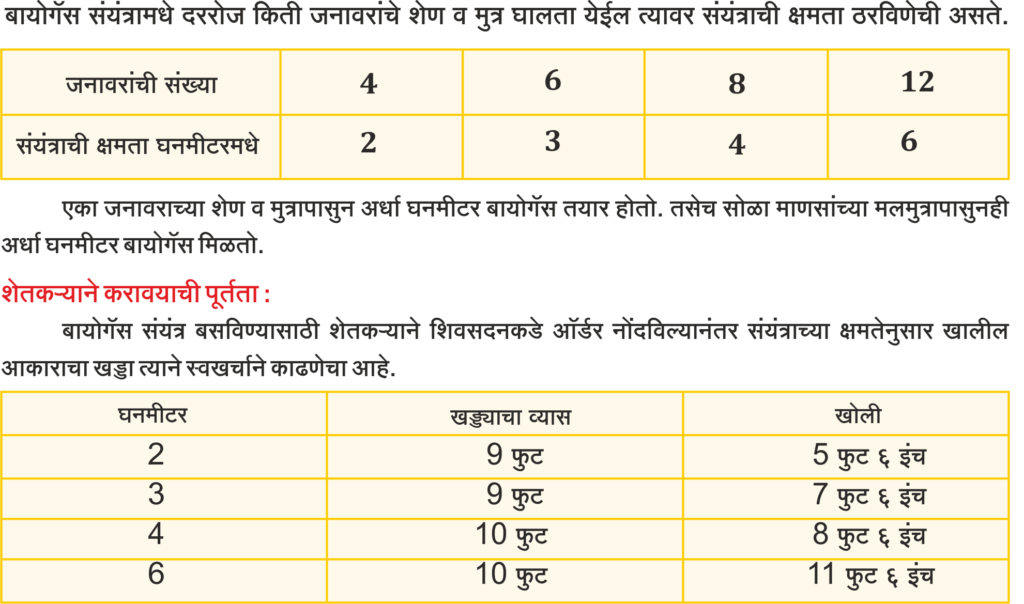
In biogas plant, if any polluting compost substance is decomposed then its polluting concentration is diluted. ShivSadan has built numerous biogas plants using poultry waste, waste from wineries, sugar factory press mud and molasses, milk edible oil, fruit-processing waste, compost waste from hospitals and slaughterhouses, food remnants from hostels, hotels, and recreation centres, as well as decomposing grain from godowns.
The stove is lighted in the farmer’s house, but the women of the house are fatigued from blowing into the stove. The home is filled with smoke. Dishes blackening from smoke, garments smouldering, walls blackening, and women’s eye problems are all distinct. All of the above difficulties will be resolved if ShivSadan installs biogas in farmers’ homes. This plant comes with a toilet. This addition not only offers surplus gas from human excreta, but it can also aid in the death of disease-causing bacteria produced by the excrement by decomposing in the plant’s oxygen-free environment. It is more cost effective to destroy the source of the sickness than to treat it with pricey medicine!
Biogas plant pulp is a great organic fertilizer. If this rubber is placed in the compost pit, along with field trash and damaged animal feed (in the barn), the farmer will receive high-quality organic fertilizer. In this method, the dung of one cow can be used to produce enough fertilizer to fill roughly twenty-five bullock carts in a year. That means there will be a fertilizer industry at home. Every year, one animal can cost Rs 5,000/- for gas and Rs 10,000/- for fertilizer. LPG gas distribution has just begun in rural areas. Yet, its cost is prohibitively expensive.
This gas will likewise be difficult to obtain in the future as ground reserves of petrol, diesel, coal, and so on deplete. The same will happen with gas, which is removed from the earth as well. Cutting trees for firewood will also be prohibited, effectively making the axe illegal. The usage of chemical fertilizers will be decreased, and organic fertilizers will be used to grow food grains and vegetables. The biogas plant will provide one or more of these benefits.
If the pit for the biogas plant is available, the biogas plant can be built in one day with the help of a crane from ShivSadan.
ShivSadan’s ready R.C.C. The expense of repairing a biogas plant is not near to RCC. Other than parts made by other manufacturers, the likelihood of damage to the grate, its cock, burner, gas pipe, and other parts due to continuous use cannot be ruled out. If this is the case, it is recommended to have it repaired by a local plumber. If it is presented to our institute, services will be provided and it will be fixed at a reasonable cost.
Shivsadan Products
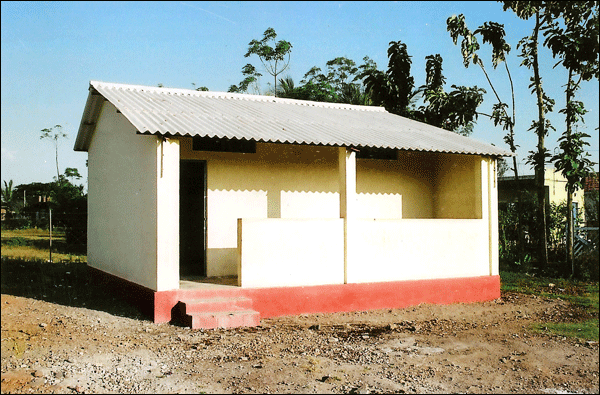
Ready Vasant Homes
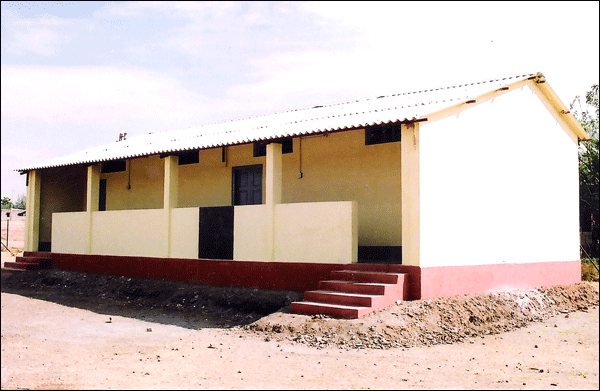
Ready School Buildings
We can assist you whether you want an emergency repair or are remodeling your house and need new line installations.
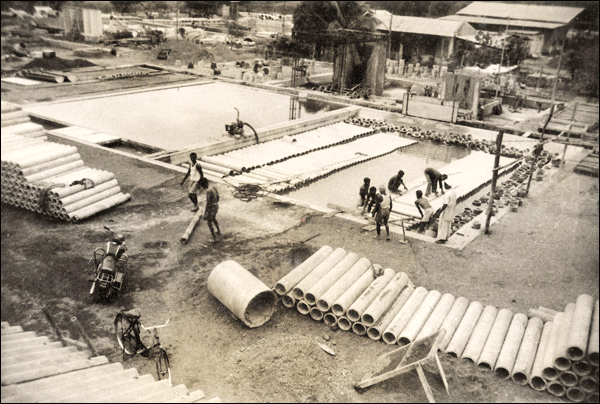
RCC Pipes
What Our Customers Say About Us



Director Team
Shivsadan Cooperative Society Ltd. Sangli

Mr. Shivaji Shankar Pol
President

Mr. Balawant Tatoba Valavekar
Vice - President

Mr. Rajaram Pandurang Nilkanth
Executive Director

Mr. Chandrashekhar Raghunath Bhide
Director

Mr. Subhash Dattatray Aarve
Director

Adv. Mr. Shriprasad Laxman Retharekar
Director

Mr. Rajendra Vinayak Shiragaonkar
Director

Mrs. Smita Prasad Kelkar
Director

Mr. Vikram Kallappa Avati
Director

Mr. Shivaji Maruti Unaune
Director

Mrs. Nanda Ananda Sawant
Director

Mr. Shrirang Pandurang Chavan
Director
Contact Us
Address
Shivsadan Cooperative Society Ltd., Sangli. 192/3, Vasantdada Industrial Estate, Sangli 416416 (Maharashtra)
Phone
(0233)2310216
(0233)2311381
+91 9423869311 ( R.P. Nilkanth, MD )
shivsadan@yahoo.co.in
Guidelines of Using Biogas Plant
1) First take the mixture of cow dung & water in the ratio 1:1. If cow dung should be broken into small pieces & then this mixture should be put in biogas plant. Take care that leaves and branches of plant should not get mixed in it.
2) Put of the gas while filling this mixture in plant and check everyday whether the gas ignites or not for a while.
3) As the pressure of the gas increases in the plant the slury from the tank below will pushed in above tank. When this slurry will come out of this tank then the biogas plant is supposed to be working with full capacity.
4) When the biogas is properly burning for longer period it can be utilized for cooking. when the gas is about to finish put off the gas with key. otherwise the slurry will enter in the gas pipe and it will be chocked.
5) Along with biogas water–vapor is also produced up to certain extent. In winter this vapor and collected in gas pipe as water. This becomes obstacle for the gas flow. In that case put the key on the biogas plant off and reconnect the pipeline of rubber.
6) In the plant only put cooked food, food and water ratio should be 1:2.
7) Do not put dry or fibrous vegetables, banana or skin of banana, lemon, plastic bags of milk or gutakha, paper pieces, tissue paper, broken glasses, spoons, toothpick, skin of coconut, bones from non–veg food, egg coverings in the plant.
8) in toilet one person should use only 2 or 3 liters of water only at a time.
9) There is separate pipe for human waste in biogas built a chamber with cover then connect the pipe of toilet to it while connecting this pipe put some cotton plug in it. otherwise the cement concrete will enter in the pipe and it will get chocked. Then it will be obstacle for waste to enter in the plant. After finishing the work remove this cotton plug and put cover to this chamber.
10) If only one toilet is to be attached to the biogas plant then the toilet seat should be at least one and half feet high from the top of the biogas plant.
11) If many toilets are to attached with biogas plant give the proper slope to the soil pipe from last toilet to the nearest toilet to the plant and the toilet seat should be arranged as above one and half feet above the biogas plants apex.
12) In the toilet pots sanitary towels of ladies, remains of cigarettes, condoms, plastic paces of ‘gutakha‘ or anything which is not decomposable is not allowed. Take care of these things should not enter in the toilet pot.
13) Waste of poultry should be mixed with water in the ratio 1:2 a day earlier in a separate tank and should be mixed with sterling it. Remove all the features of birds should be removed from the mixture. Except non–decomposable material one which is become homogeneous should be taken from the tank and mix in the biogas plant.
14) See that features of the bird should not enter in the plant.
Guidelines of Using Biogas Plant
After the construction of the biogas plant, the customer should pour some water into the plant’s manhole on the second day and leave some water on the side that has been filled to strengthen the concrete. After eight days, prepare a 1:1 dung and water mixture from the dung pot placed on the plant’s head and left in the plant. Owing to the enormous amount of dung necessary at first, if possible prepare dung on the side (in a barrel, keel, or poor tank) and release it through the inlet hatch.
It is critical to ensure that gravel, soil, kadba kutti, and grass do not mix with the dung, Otherwise, the pipe could become choked, causing the biogas plant to shut down.
2, 3, 4, and 6 cubic meters of dung and the same amount of water are required to fill a biogas plant of 2, 3, 4, 6 cubic meters with dung. The biogas plant is to be filled with cow dung up to the center where the manhole is attached. The cock attached to the GI pipe should be kept open otherwise the dung will not enter the plant. After filling the cow dung, the cock should be closed for eight days. Because in a Shivsadan’s ready R.C.C. biogas plant, biogas is stored under a dome. As soon as the biogas is set, the gas pressure should be filled once to the full capacity of the biogas plant with cow dung in minimum time
Filling a biogas plant with 2, 3, 4, or 6 cubic metres of dung and the same amount of water requires 2, 3, 4, or 6 cubic meters of dung and the same amount of water. The biogas plant will be filled with cow dung all the way to the centre, where the manhole will be attached. After filling the cow dung, the cock should be closed for eight days after filling it with cow dung. Biogas is stored in the dome in the biogas plant. Thanks to Shivsadan’s ready R.C.C. As soon as the biogas plant is operational, the gas pressure should be filled once to the biogas plant’s full capacity with cow dung in minimum time.
Once the gas determination process is underway, the cow dung should be filled on a daily basis in accordance with the plant’s capacity. The gas in the biogas plant is initially low in methane and high in unburned carbon dioxide. As a result, the grate does not catch fire at first. As the amount of methane air grows, the grate begins to burn more efficiently. Water accumulation owing to water vapour coming with the biogas is possible if there is a leak in the half-inch gas pipe. If the flame on the grate turns reddish, or if the flame breaks, it is likely that there is water in the gas pipe.
In this instance, the pipe from which the water came should be pulled from the bottom and the water stored in it should be sent to the biogas plant, after which the grate will function properly. The daily discharge of rubber from biogas and bhanglani grass from the field, as well as waste from the lawn, can be used as supplementary organic fertiliser if well scheduled. To do this, such grass and other stick waste should be dumped on the ground at a height of one and a half feet and measuring 10 x 15 feet, and the daily fall of rubber should be scattered over it based on the availability of rubber. In three to four months, the grass and wood waste in each depot will have decomposed and will be a good organic fertiliser.
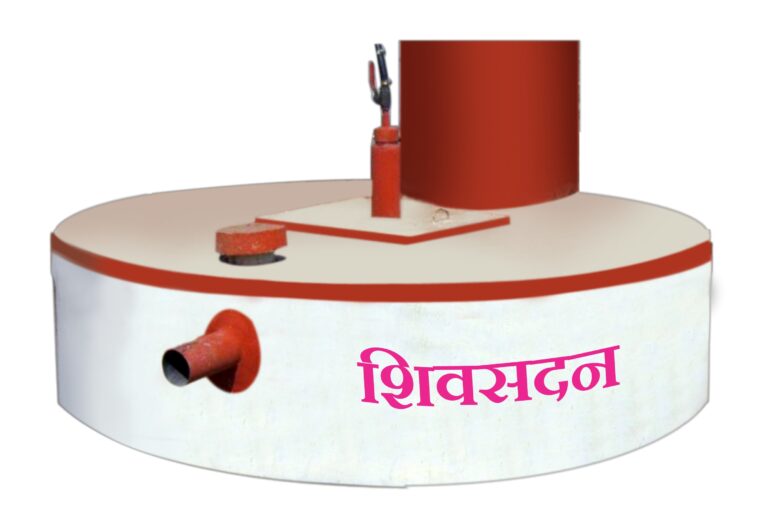
Dear Hotel owners!
A major issue has developed in the minds of professionals over what to do and where to dispose of leftover food from hotels, dhabas, restaurants, mangal offices, religious places, and so on. Shivsadan decided to use the spoiled food in energy generation after considering what else might be done with it. Shivsadan, according to this, has begun production of a biogas plant that runs on raw and cooked food waste. The aforementioned biogas plants are now operational at hotels, dhabas, restaurants, mangal Karyalayas, and other locations.
With the rising rates of LPG gas, Shivsadan’s biogas facility has proved to be a great boon. If we look at the financial benefit of this biogas plant, we can see that we are wasting thousands of rupees per year, as shown below.
If a hotel generates 40 to 50 kilogrammes of garbage per day, a biogas plant with a capacity of 6 Cubic Meters can be elected. Six thousand litres of biogas per day will be available for burning from this biogas plant. If one kg of LPG gas is used to prepare food, it produces 6529 kilocalories of heat, and if one cubic metre, or 1000 litres, of biogas is used, it produces 2828 kilocalories of heat. In a biogas plant of capacity 6 cm X 2828 KCal X 365 Days = 61,93,320 kilocalories of heat is obtained. If one kg of LPG is used, 6529 Kcal, This means you will get to 61,93,320 ÷ 6529 = 948 kg of LPG. A 19 kilogramme commercial cylinder of LPG currently costs up to Rs.2300. That means 1 kilo of LPG will cost Rs.121 at the current price. Now, from a biogas plant, you will typically receive 948 kg LPG, or (948÷19) = 49 cylinder gas. One cylinder costs Rs 2300, whereas 49 cylinders cost Rs 1,12,700/-. The amount of gas produced by the biogas plant is determined by the feedstock. Taking into account the decreased quantity of feeding material, even assuming a general reduction of 10 to 15%, the gas costing Rs. 1,12,700/- minus 15% (16905/-) = Rs. 95795/- will be acquired from the biogas plant. Once Shivasdan’s RCC is now completed, a biogas plant will give uninterrupted service to the customer for 40 years, hence the gas cost will be Rs. 95795 x 40 years = Rs. 38,31,800/-. We will see how useful Shivsadan’s ready RCC biogas plant is and how much money we will save as a result of this.
Shivsadan manufactures ready-made RCC biogas plants at its facilities at Vasantdada Industrial Estate, Sangli, Shivsadan. The plant is then carried to the customer’s location by truck and installed through Shivsadan itself. The work is finished in two days. The biogas plant also includes a 15-meter gas pipeline and a single burner grill designed specifically for hotels. If more pipe is required, it is also available at a reasonable cost. Shivsadan provides biogas plants with capacities ranging from 2, 3, 4, and 6 cubic meters, depending on the amount of feeding material (kitchen garbage/waste) collected daily.
Wherever there is food spoilt, there is a Shivsadan RCC with sufficient capacity to process it. Installing biogas plants is beneficial. Therefore, if you are interested and visit Shivsadan’s plant in Sangli once, you would be given complete information. Welcome to our factory.
Image Gallery






